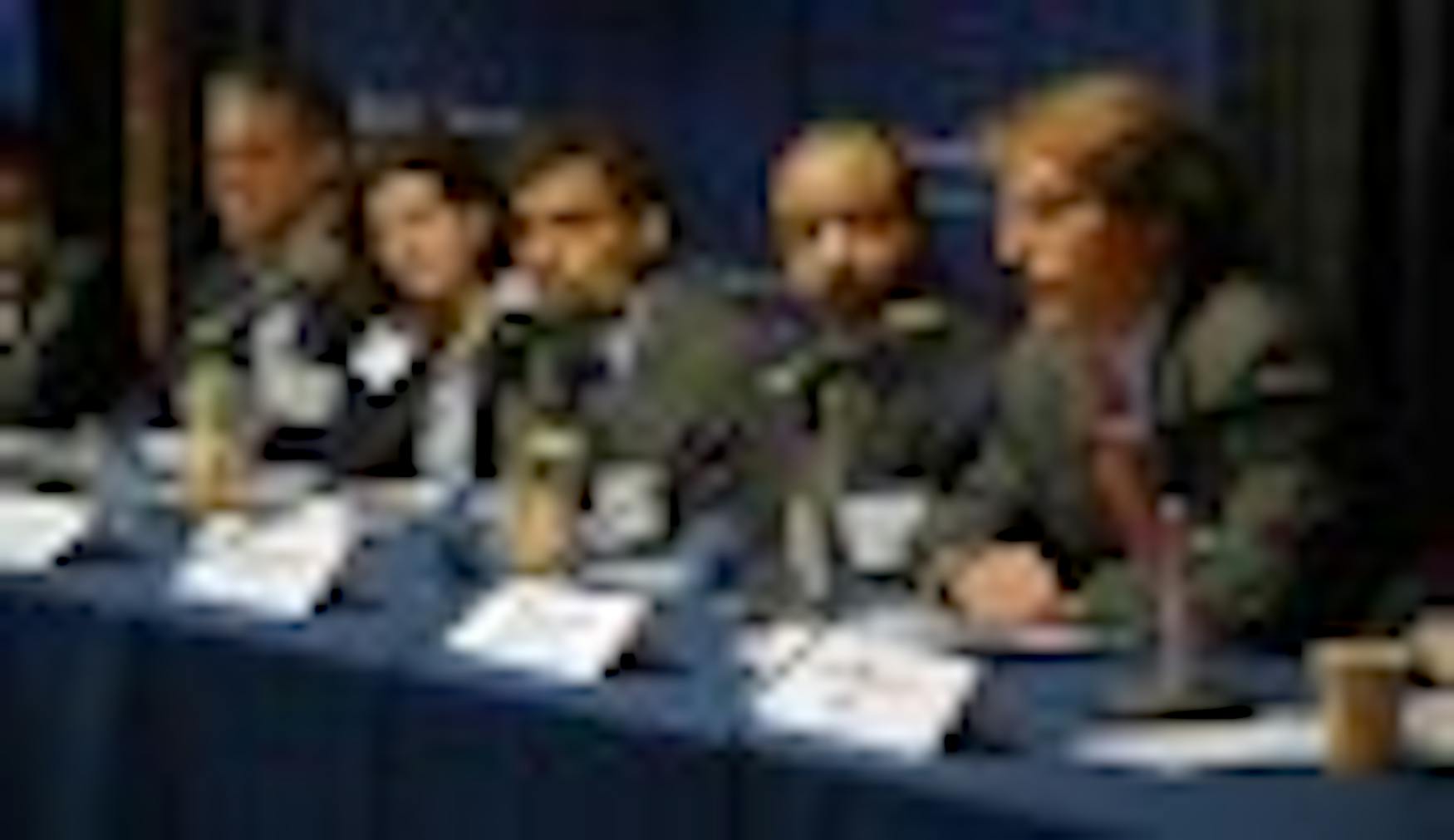Leaders discuss UK-Israel trade mission
A panel of eight leaders in business spoke at a media roundtable at the 2011 Global Trade Summit last Tuesday. They discussed business practices that they encountered on the Massachusetts Innovation Economy Partnership Mission 2011 to Israel and the United Kingdom and the application of these practices for Massachusetts companies. The roundtable discussion took place in the Alumni Lounge in the Usdan Student Center and was the first event in the day-long Global Trade Summit hosted by the Brandeis International Business School and the Perlmutter Institute for Global Business Leadership.
The summit included sessions focusing on international trade and business, following the business panel itself.
Each of the panelists, including moderator Bruce Magid, dean of IBS, accompanied Patrick on the mission that arrived in Israel on March 7 and left the UK on March 17, according to a March 8 article in the Justice. In his introduction to the roundtable discussion, Magid said that the Global Trade Summit was organized in response to the trade mission as a "logical and natural follow-up."
According to the Justice article, the trade mission primarily addressed opportunities and challenges for companies that work in technological fields.
Each of the panelists works with companies that focus on biopharmaceutical technology, life sciences technology or social networking.
Magid said that the goal of the Global Trade Summit was to provide attendees with "the practical knowledge they need to expand exports and build international partnerships."
The goal of the Global Trade Summit, Magid continued, was to bring together "representatives from industry, academia and the public sector to identify opportunities for future growth and job opportunities in the state [of Massachusetts]."
Magid asked each of the panelists to explain why they chose to participate on the trade mission and to share insights they gained from the program.
Diane Hessan, president and CEO of Communispace, which provides consumer insights and market research, who only attended the Israel portion of the program, said that she chose to participate in the trade mission because Israel is "number 1" in startups, venture capital, engineers and Ph.D.s per capita, and because technologies such as the cell phone, voice mail and the first anti-virus software were invented there.
The two goals she had for the program, she said, were to learn how to implement Israeli business practices, particularly concerning environmental sustainability and handling risk in Massachusetts, and to bring Israeli entrepreneurs to Massachusetts.
Tamara Joseph, senior vice president and general counsel of Cubist, a bio-pharmaceutical company, said that the decision to go to Israel was a "no-brainer" because "there are very interesting innovations there," especially concerning collaboration and innovation in business.
Michael Greeley, general partner at the venture capital firm Flybridge Capital Partners said that he had hoped to learn how Israel has "weathered the storm" of the global economic recession, citing the country's "collaborative investment community" as a trait from which he hopes that Massachusetts businesses can learn.
Other panelists also focused on Massachusetts' role in international trade.
Andy Ory, co-founder of Acme Packet, which produces session border controllers for telephone communications, said that he believes Massachusetts has a "culture of innovation ... [and] a culture of excellence" that will be key to leading the changing technological market. He said that in order to enact this change, Massachusetts business leaders must "get out and engage and learn" how best to function in the changing market.
Praveen Tipirneni, vice president for business development at Cubist, spoke about the benefits afforded to Massachusetts companies, particularly in his company's fields of life sciences and biotechnology, because of the "critical mass of all the disciplines you need to get a biopharmaceutical company started and going forward" available in the state.
"Massachusetts is competing for its edge on a worldwide basis," said Winston Henderson, vice president and general counsel of the drug development company Surface Logix.
The ability for companies in today's economy to grow fast, Henderson said, is "critical." One of his goals for the trade mission was to "put Massachusetts on the forefront" in global trade, he continued.
Frank Sinton Jr., CEO of PMC BioTec, which provides waste treatment technologies, the final panelist, added that one of the "side benefits" of the trade mission was the connections he was able to make with fellow Massachusetts business leaders during "bus time" and other time spent traveling.
These local connections, he said, have helped him to learn about other business practices and have led to collaborative business plans that will help create jobs in Massachusetts.



Please note All comments are eligible for publication in The Justice.